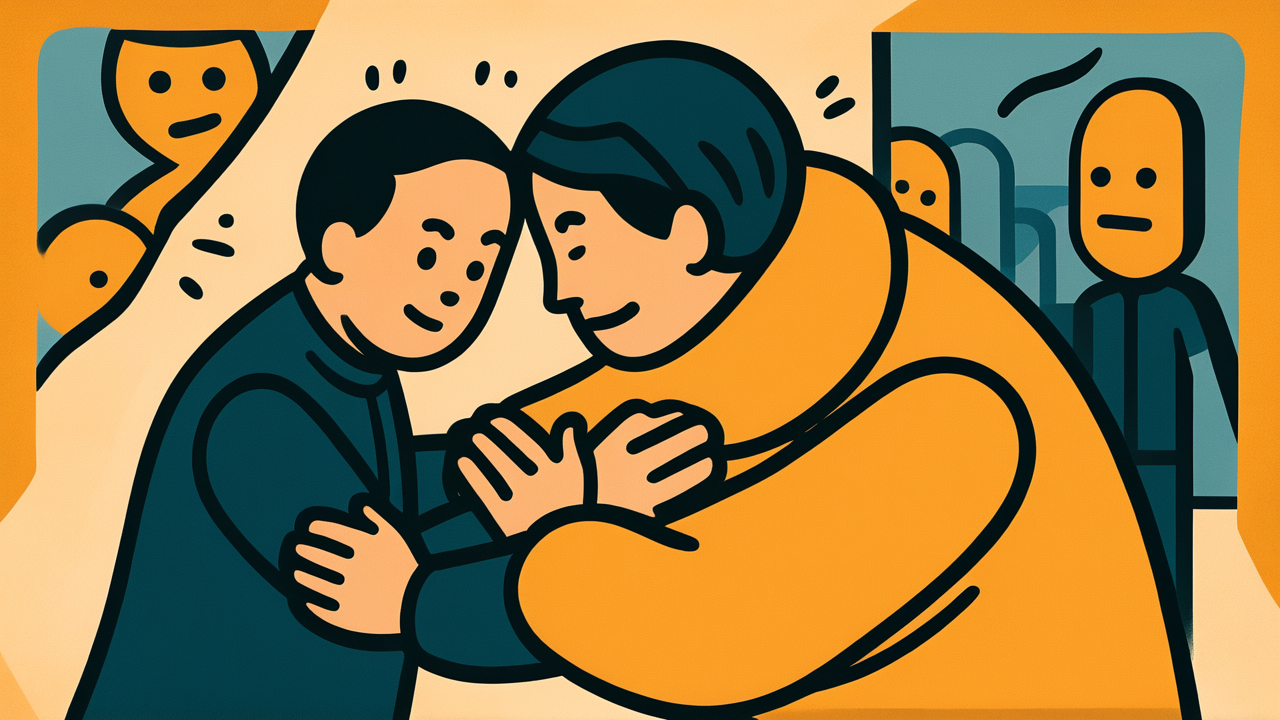How to Read “汝の敵を愛せよ”
Nanji no teki wo ai seyo
Meaning of “汝の敵を愛せよ”
“Love your enemies” is a teaching that one should approach even those who are hostile or harbor hatred toward them with love and compassion.
This phrase carries more than just the meaning of forgiving enemies; it has a much more proactive significance. Even when someone tries to harm you, it demands the very high spirituality of wishing for that person’s happiness and responding with goodwill. It expresses the ultimate tolerance of breaking the chain of revenge and retaliation, and transforming adversarial relationships through love.
This teaching is applied when conflicts and disputes arise in human relationships. It serves as a guideline for reframing situations from a higher perspective when we tend to become emotional, hate others, or think of revenge. Even in modern society, this spirit is needed in various situations such as workplace relationships, family feuds, and community conflicts. It is a hopeful teaching that by loving others, we can change their hearts and ultimately build peaceful relationships.
Origin and Etymology
Actually, “Love your enemies” is not an ancient Japanese proverb. This derives from the Christian teaching in the New Testament, Matthew Chapter 5, Verse 44: “Love your enemies and pray for those who persecute you.”
With the opening of Japan during the Meiji era, Western thought and religion flowed into Japan. At that time, biblical teachings were translated into Japanese, and the phrase “Love your enemies” also spread. It is believed that this phrase permeated Japanese society particularly from the Meiji to Taisho periods through Christian schools and publications.
What’s interesting is that in the process of this phrase taking root in Japan, it was understood in connection with the Buddhist concept of “compassion” and the Confucian idea of “benevolence.” It wasn’t a completely foreign concept to Japanese people, and because it resonated with existing moral concepts, it came to be used like a proverb.
In modern times, it is often used without consciousness of its religious background, and has truly established itself as part of Japanese spiritual culture. Despite being of Western origin, it can be said to be an interesting example of cultural fusion, accepted as a universal teaching that resonates with the Japanese heart.
Usage Examples
- I don’t agree with that person, but let me try to approach them with the spirit of “Love your enemies”
- They say “Love your enemies,” but when you actually try to do it, it’s quite difficult
Modern Interpretation
In modern society, the teaching “Love your enemies” has new meanings and challenges. In our information age where social media has become widespread, conflicts with faceless opponents occur daily. With anonymous slander and online controversies happening frequently, this teaching can be said to have increased importance.
However, realistically, the difficulty of practicing this ideal has also been highlighted. Modern people tend to value efficiency and rationality, and not a few people question seemingly inefficient acts like “loving enemies.” Realistic voices are heard saying “Why must we love bad people?” and “Isn’t protecting ourselves more important?”
On the other hand, this spirit is actually being utilized in corporate crisis management, customer service, and international diplomacy. The attitude of considering the other party’s position in complaint handling, and diplomatic approaches where opposing countries emphasize dialogue, can be said to be modern applications of the spirit of “loving enemies.”
Also, from a psychological perspective, it has been proven that letting go of hatred and anger leads to one’s own mental health, creating the interesting phenomenon of this ancient teaching being supported by modern science.
When AI Hears This
The essence of “love your enemies” isn’t magic to change others, but an internal revolution that fundamentally rewrites your own emotional operating system.
Hatred and anger actually mean you’ve handed complete control of your emotions over to the other person. Whatever your enemy does automatically determines how you feel. This is essentially like giving your enemy a remote control to your inner state.
According to psychology’s “emotion regulation theory,” our emotional responses are learned patterns that can be consciously modified. The act of loving your enemies is deliberately overwriting this automatic response system.
What’s fascinating is that this choice to “love” functions completely independently of the other person’s behavior. Whether they apologize or continue attacking, your emotional state is no longer at the mercy of their actions. This is true freedom.
Furthermore, hatred consumes enormous amounts of mental energy. Time spent plotting revenge, effort maintaining anger, attention devoted to monitoring their every move. By loving your enemies, all this energy gets released and redirected toward creative pursuits.
In other words, “love your enemies” isn’t for their sake—it’s the most efficient method of self-liberation to escape emotional slavery and reclaim control of your life.
Lessons for Today
“Love your enemies” teaches us about fundamental ways to resolve conflicts and disputes. We face various interpersonal frictions daily, but this phrase teaches us the importance of viewing situations from a higher perspective rather than reacting emotionally.
What can be most applied in modern society is developing the habit of thinking from the other person’s perspective. Even opponents in conflict have their own circumstances and backgrounds. Rather than judging based only on surface actions, by focusing on the humanity beneath, relationships can potentially change dramatically.
Also, this teaching connects to one’s own peace of mind. Continuing to harbor hatred and anger ultimately ends up tormenting oneself. By forgiving and loving others, we actually become the most liberated.
It may be difficult to practice this teaching perfectly. But if we have the attitude of trying to deepen understanding of others little by little, the heart that doesn’t give up on dialogue, and above all, the feeling of believing in our own growth, surely a path will open. I hope that the relationships around you become warmer and richer.



Comments